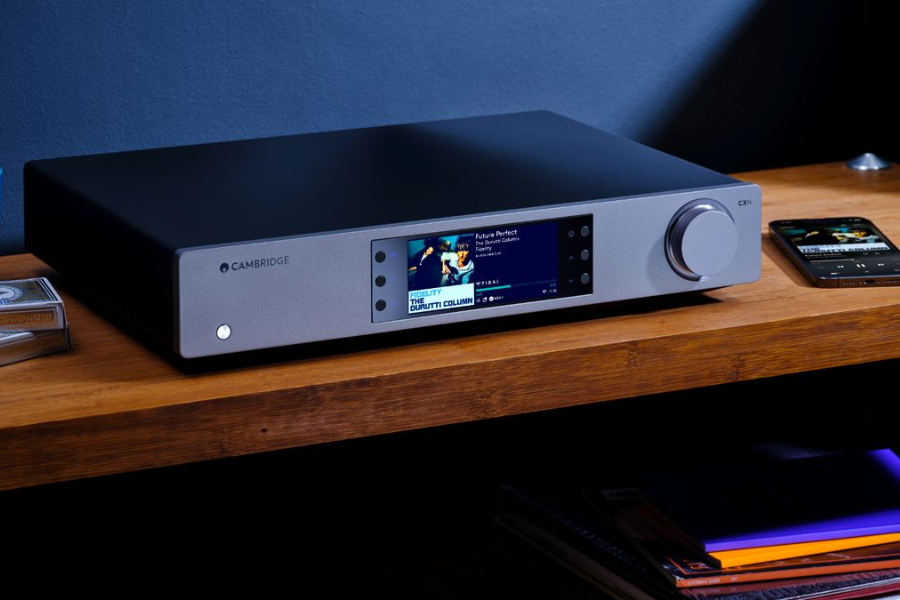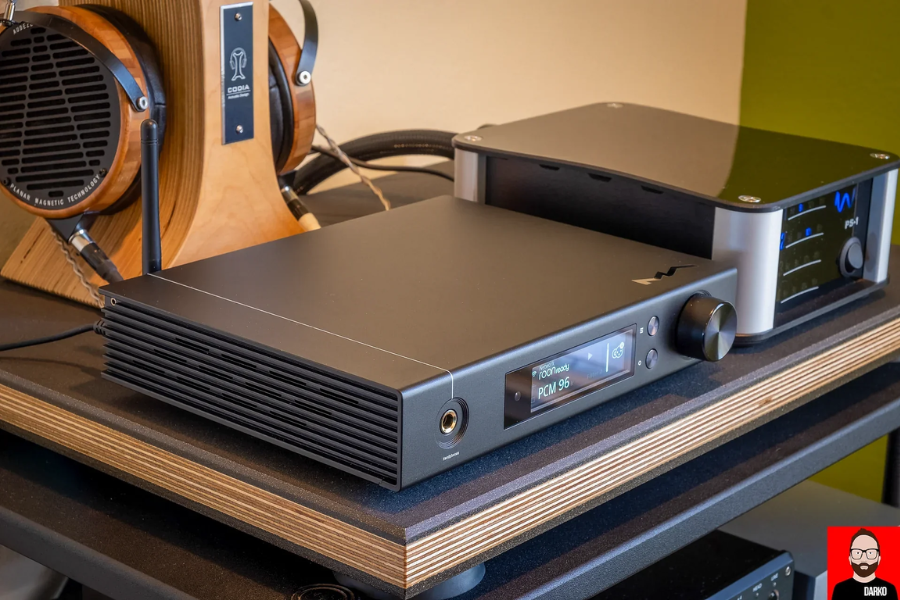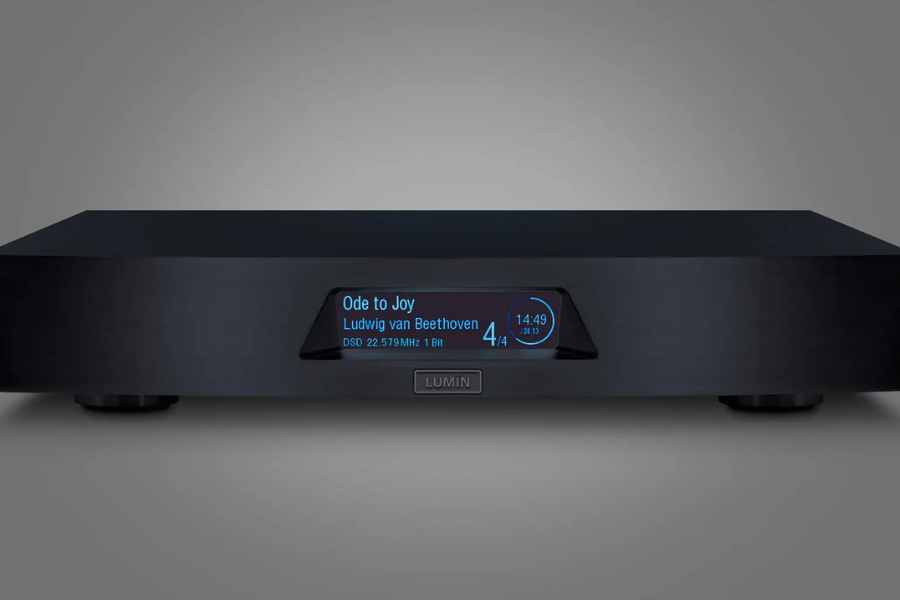Whether you prefer old-school formats like CDs and vinyl records or have fully embraced the digital age with music streaming services like Spotify, Apple Music, or Tidal, there’s one common challenge: connecting all your music sources seamlessly to your sound system. This is where a music streamer with separate power supply can transform your setup.
While you may already have a high-quality integrated amplifier and speakers for spinning your vinyl records, adding a dedicated network music streamer can bridge the gap between traditional hi-fi systems and digital audio. Let’s explore what a network music streamer is and why it’s worth your attention.
The Basics of a Network Music Streamer

A network music streamer is an internet-connected device designed to deliver digital music to your audio system. It connects to the internet via Wi-Fi or Ethernet and streams music from services like Spotify, Apple Music, or Tidal. A music streamer with separate power supply offers better audio performance by reducing interference and ensuring cleaner sound.
These streamers are compatible with various file formats and services, making them a versatile addition to your setup. They’re not just for tech enthusiasts; casual listeners and audiophiles alike can appreciate the improved sound quality and convenience they bring. Now, let’s dive deeper into what you can expect from a network music streamer.
What Features Can You Expect?
Network music streamers come in all shapes and sizes, from compact units to larger devices resembling Blu-ray players. Big-name brands like Sonos, Cambridge Audio, Yamaha, and Naim offer a range of options, while smaller companies like Wiim and Audioengine also provide excellent alternatives. Many of these devices, including those with separate power supplies, offer connectivity options like USB, Bluetooth, AirPlay, Chromecast, and more.
Once connected to your audio system and paired with your internet network, a music streamer becomes a hub for digital audio. It can stream music from platforms like Tidal, Qobuz, and Deezer or access music files stored on USB drives, external hard drives, or network-attached storage (NAS) devices. Some models even support multi-room audio, allowing you to sync music across multiple rooms using compatible devices.
Additionally, high-end music streamers often come with built-in storage, making it easy to store and access hi-res audio files. A music streamer with separate power supply is particularly valuable here, as it ensures uninterrupted power for better sound quality.
Why Invest in a Network Music Streamer?
Enhanced Audio Quality
One of the most significant advantages of owning a network music streamer is the superior audio quality it provides. Many streamers are equipped with high-performance digital-to-analog converters (DACs), which are crucial for converting digital audio into analog signals. A music streamer with separate power supply typically includes a more advanced DAC, capable of handling high-resolution audio formats like FLAC, DSD, and ALAC with ease.
The result? Clean, detailed audio that surpasses the capabilities of most everyday devices like smartphones or laptops. Whether you’re streaming lossless music from Tidal or playing hi-res files from a USB drive, the difference in sound quality is noticeable.
Unified Control
Another benefit of network music streamers is their user-friendly interfaces. Many devices come with dedicated apps that allow you to control all your music sources from one place. Whether it’s a streaming service, NAS drive, or USB input, you can access everything through a single app on your smartphone or tablet. Some models also feature physical controls, LED screens, and remote controls for added convenience.
A music streamer with separate power supply often includes these advanced features, ensuring a seamless and enjoyable user experience.
Key Considerations When Buying a Music Streamer

Budget
As with any audio component, your budget will play a significant role in your decision. Network music streamers range in price from around $100 to several thousand dollars. While more expensive models typically offer better sound quality and features, there are budget-friendly options like the Wiim Pro that deliver excellent performance for their price.
If you’re considering a music streamer with separate power supply, keep in mind that these models often fall on the higher end of the price spectrum. However, their improved audio performance can make them worth the investment.
Sound Quality
Most music streamers deliver at least CD-quality sound, but if you’re an audiophile, you’ll want a device that supports hi-res audio formats. Look for a music streamer with separate power supply that includes a high-end DAC to ensure the best possible sound quality.
Compatibility
Before purchasing a music streamer, ensure it’s compatible with your existing audio equipment. Most devices support a wide range of connectivity options, but it’s essential to check that the streamer works with your amplifier, speakers, or receiver. Additionally, verify that it supports the streaming services and file formats you use most frequently.
User Interface
A good user interface can make all the difference. Many high-end streamers, especially those with separate power supplies, come with dedicated apps and intuitive controls. Look for models that offer features like native integration with streaming platforms, customizable settings, and multi-room audio support.
Alternatives to Network Music Streamers
If a network music streamer seems out of reach, there are alternatives to consider. Devices like the Apple TV 4K or Chromecast can provide access to streaming platforms and connect to your AV system. However, these options may not deliver the same audio quality as a dedicated music streamer with separate power supply.
For example, the Apple TV 4K supports apps like Tidal and Spotify, but it relies on AirPlay or Bluetooth for audio streaming, which can limit sound quality. A dedicated music streamer, on the other hand, ensures optimal performance by leveraging advanced audio processing technology.
Final Thoughts
A network music streamer is a valuable addition to any audio setup, offering improved sound quality and seamless access to digital music. Whether you’re a casual listener or an audiophile, investing in a music streamer with separate power supply can elevate your listening experience to new heights.
From budget-friendly options to high-end models packed with features, there’s a music streamer for everyone. By considering factors like budget, sound quality, and compatibility, you can find the perfect device to suit your needs. Happy streaming!
Explore trending topics and breaking news across entertainment at EasyFuzz.com.











